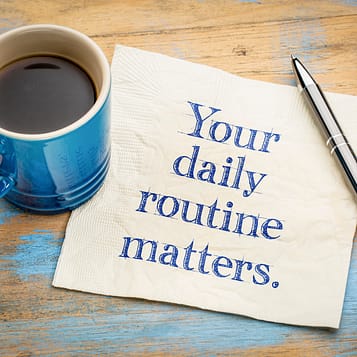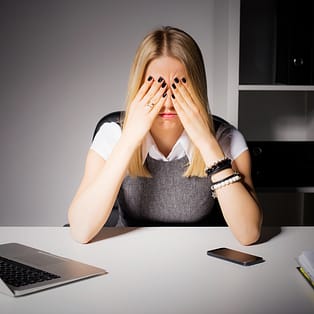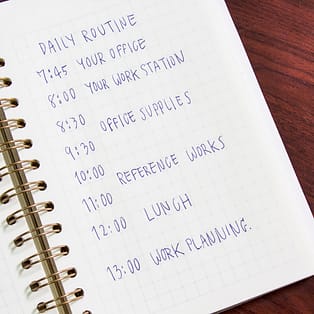Why is routine important for mental health?
Why do we need to have routines?
We will explore these questions in this article to understand more deeply about the role routine has to play in managing our mind.
One question that I get asked frequently from my clients is why is routine important in anxiety management?
Why do we really need to have routines?
Many of you who have a morning routine, afternoon routine, a weekend routine or weekday routine, can relate to this conversation.

When you practice routine, it brings a certain structure to the day.
But many of you who are going through different kinds levels of anxiety or depression, whether it's mild or moderate or intense, maybe struggling to maintain a routine or to keep up a consistent routine.
Now this is understandable, but this is not very helpful.
Why are routines really needed?
To understand why routines are really needed, let's examine what happens when there is no routine in the day.
It is possible that many of us might find it really difficult to have any kind of routine at all, we might be following zero routine. Every day is completely different.
Or there might be some of us who have a routine, but it's a poor routine. There is very little consistency in our routines.

When we are inconsistent with a routine, maybe we have followed the routine for two or three days, sometimes we are not able to follow after that for a week or two and then again, go back to the same routine, so we are kind of jumping and swinging like a pendulum.
So, what happens when there is no routine?
When there is no routine, the brain does not know what to expect.
When there is no routine, there is no clear structure to the day
When there is no clear structure to the day, there is no clear structure to the mind.

Can you imagine what that can do with a person who is going through anxiety; there is no clear structure to the mind, so the anxious thoughts can really get going and take over the mind.
That can really lead to more severe anxiety or severe depression.
On the other hand, if you bring in a routine at that point of time, say you're going through a little anxiety and you bring in a routine.
For example, even though
I don't feel like it, let me do my exercise, that exercise changes your mood
and gets you out of the anxiety and back to where you need to be.

Another example would be that, you might have a routine that, this is the time when I'm doing my cooking or I'm doing my dishwashing or I'm talking to my family.
Irrespective of the state of your mind, irrespective of the anxiety you feel, when you go ahead and follow your routine, you are changing your brain patterns. By following a routine, you're able to bring your mind back on track from an anxious mode of thinking to a more calmer state of mind.
So, even though if routine might feel uncomfortable or you might feel uneasy about going into the routine because of anxiety or because you don't feel like it, it still is extremely helpful to have a reasonable, consistent routine.
The other thing that routine does:
It brings expectation.
So, in addition to a structure, it brings expectations.
The mind knows exactly what to expect.
For example, say you have a routine of a morning walk, the mind knows at this particular time, if I go for a walk this is what I expect.
Maybe my arms and my legs might ache and maybe I'm not able to do other tasks, but I know exactly what to expect will happen when I go for a walk.
Expectation and certainty always reduces anxiety.
Expectation and certainty always reduces anxiety.
The other thing that routine does is because of the structure, because of organizing your day much better.
It reduces overwhelm.

It reduces overwhelm because you know exactly what to do, you probably might end up being more productive and when you are more productive you are able to reduce your overwhelm.
You're also able to reduce your burn out, your day is not as chaotic.
In comparison, when you don't have a routine, you might have said that, 'I'm going to do this task somewhere in the evening'. But then evening comes and something else takes over and then suddenly you find it's nighttime and you have not completed the task that you have wanted to do.
That will increase your anxiety all the more when you're trying to sleep.

Routine ensures that you have structure, it ensures there is certainty and there is expectation. All these together help in reducing overwhelm.
The last thing I want to say about routines, it helps in
creating Healthy Habits.
So, if you're struggling to have healthy habits, routine is a great way to start.
When you start with creating some small habits, then you can slowly add on, one by one, more habits. Do watch my video on micro Change, which might be helpful to understand how you can take small incremental steps to bring about a bigger change.
Routine is a great tool to bring about changes in life, to restart new healthy habits.
When you have something in the routine, that means that there is a greater chance, a greater probability of you doing it, but if you don't have something in the routine there's probably almost a negligible chance of you doing it.
So routine is a great, great tool and it really is very, very important for all of us and especially if you are going through any levels of anxiety, depression or overthinking, just having a simple routine in the day goes a long way in ensuring that your day is a happy day.
